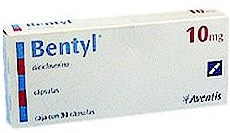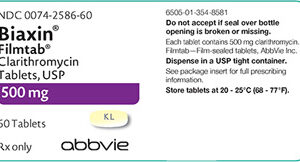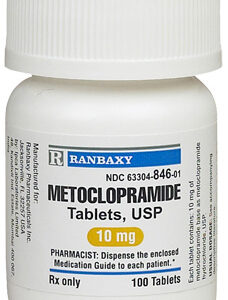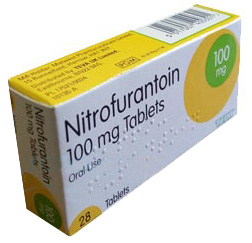Overview of Bentyl
Dicyclomine, known by its brand name Bentyl, is a medication with antispasmodic and anticholinergic properties. It’s mainly prescribed to alleviate the symptoms linked with functional disturbances of the gastrointestinal tract, often labeled as irritable bowel syndrome (IBS). Bentyl operates by relaxing the smooth muscles found in the gut which helps to reduce the painful muscle spasms associated with this condition.
Indications for Use
Dicyclomine is indicated for patients experiencing the spasmodic manifestations of irritable bowel syndrome. This medication is beneficial in addressing various discomforts linked to IBS such as abdominal pain, cramping, and intestinal hypermotility. It is essential that clinicians carefully assess each patient’s individual requirements before recommending Bentyl as a therapeutic option.
Dosage Guidance
The dosage regimen for Bentyl is typically tailored according to the severity of the symptoms and the patient’s response to the treatment. Commonly, the initial dose is 20 mg, taken by mouth four times daily. With the patient’s response to therapy, the dosage may get escalated to a maximum of 40 mg four times daily. For sustained treatment outcomes and patient safety, it is vital to adhere strictly to the prescribed dosage.
Administration Instructions
Bentyl should be consumed as directed by a healthcare provider. It is recommended to take this medication without food, unless it causes stomach upset, in which case food can help to mitigate the discomfort. Bentyl capsules should be swallowed whole, not chewed or crushed, to ensure the medication is released into the body correctly. Consistency in taking Bentyl at the same times each day can also improve symptom management.
Contraindications and Precautions
There are specific situations where Bentyl should not be used. Individuals with known hypersensitivity to dicyclomine or any components of the formulation should avoid this medication. Additionally, it is contraindicated for patients with obstructive uropathy, obstructive disease of the gastrointestinal tract, severe ulcerative colitis, reflux esophagitis, myasthenia gravis, glaucoma, and unstable cardiovascular status in acute hemorrhage. Extreme caution is advised when using Bentyl in infants less than six months of age, as they are more susceptible to the adverse effects of the drug.
Interactions with Other Medications
Bentyl can react with other medications resulting in diminished effect or increased risk of adverse reactions. Medications with anticholinergic properties or those that alter gastrointestinal motility should be used cautiously in combination with Bentyl. Specific interactions may occur with amantadine, MAO inhibitors, phenothiazines, benzodiazepines, narcotics, and sympathomimetic agents. Patients should always inform their healthcare professionals of all prescription, over-the-counter medicines, and herbal supplements they are taking to prevent potential drug interactions.
Possible Side Effects
While Bentyl is effective in relieving IBS symptoms, it may cause side effects in some patients. Common adverse reactions include dizziness, dry mouth, blurred vision, nausea, light-headedness, drowsiness, and weakness. These are typically mild and may lessen as the body acclimates to the medication. More severe but less common side effects such as confusion, hallucinations, and changes in heart rate should be reported to a doctor immediately. Patients who experience anaphylaxis or other hypersensitivity reactions should seek emergency medical attention.
Monitoring and Follow-up
Regular monitoring and follow-up appointments are essential when taking Bentyl. Healthcare providers will assess the efficacy of the medication and monitor for adverse reactions. It is also important for patients to keep track of their symptoms and any side effects they experience to report during follow-up visits. Appropriate adjustments to the treatment plan can be made based on this feedback. If symptoms do not improve or worsen, further evaluation may be necessary.
Important Safety Information
Patients should be apprised of the anticholinergic effects of Bentyl, such as heat prostration (fever and heat stroke due to decreased sweating) which can occur when used in a hot environment. Because of the potential for drowsiness and blurred vision, caution is advised when driving or operating machinery. Patients with a history of urinary retention, angle-closure glaucoma, or prostatic hypertrophy should use Bentyl with caution and under the close supervision of their healthcare provider.
Patient Counseling Points
When taking Bentyl, patients should be counseled on several important points to ensure the safe and effective use of the medication. Patients should understand the timing of when to take the medication in relation to meals, the importance of taking the medication regularly, and not to exceed the prescribed dosage. They should be aware of the common side effects and when to seek medical advice. Additionally, lifestyle modifications like diet, stress management, and regular exercise, which can complement the management of IBS symptoms, should be discussed.





Reviews
There are no reviews yet.